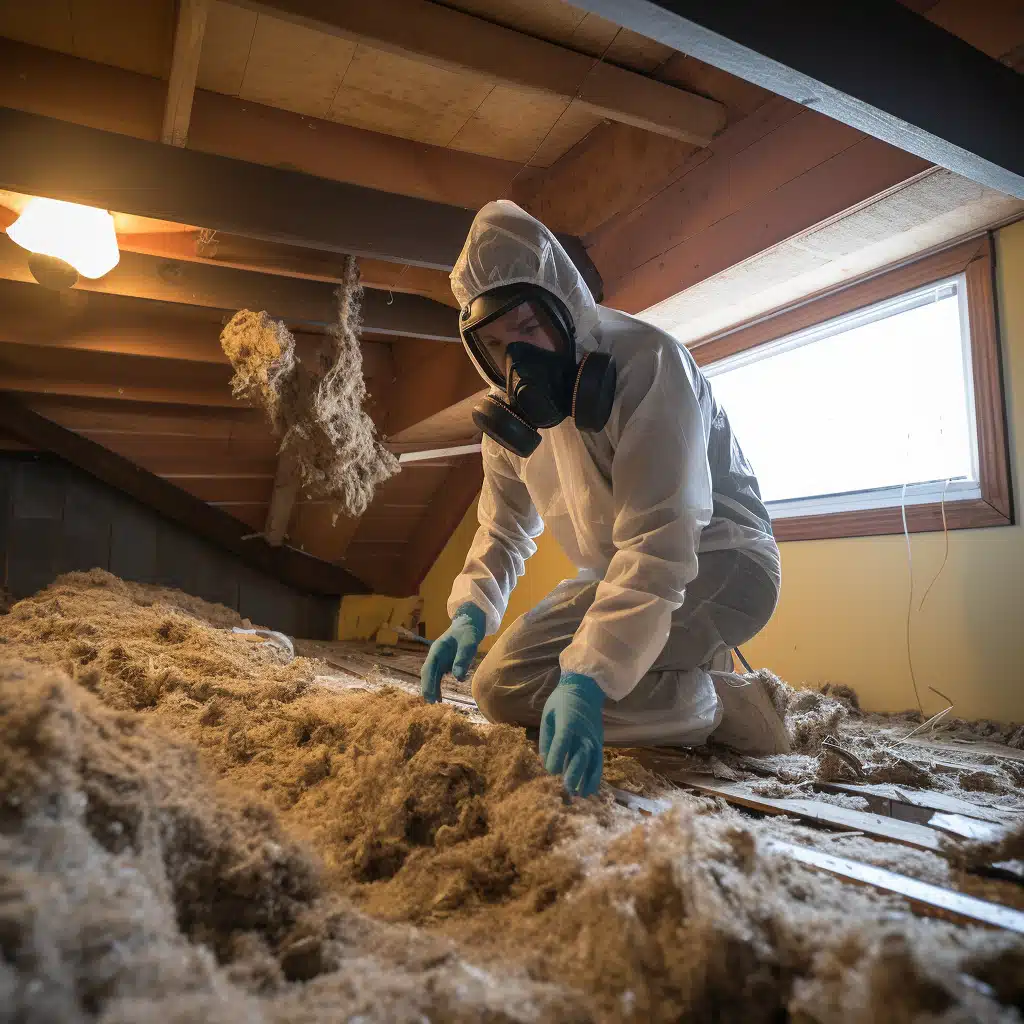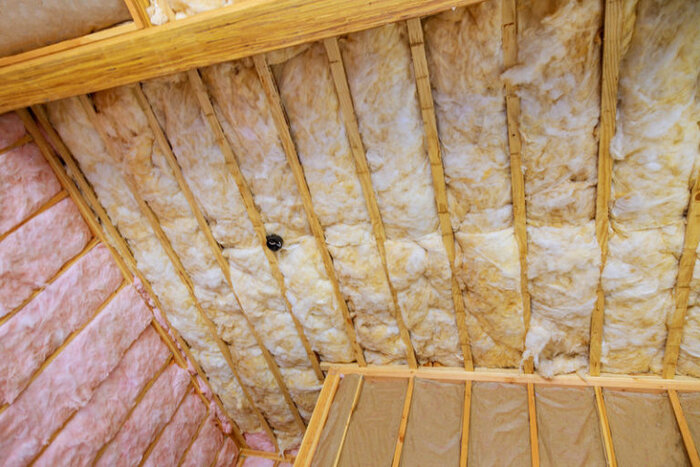Discover the Various Sorts Of Attic Insulation and Their Special Benefits for Your Home's Power Efficiency

Fiberglass Insulation
Fiberglass insulation is one of the most generally utilized materials for attic room insulation due to its superb thermal performance and cost-effectiveness. Made up of small glass fibers, this product successfully traps air, developing an insulating obstacle that assists keep consistent interior temperatures. Its high R-value per inch makes it particularly reliable at withstanding warm transfer, which is essential for power conservation in homes.
Setup of fiberglass insulation is relatively simple, often offered in batts or loose-fill types, suiting different attic room configurations. In addition, it is non-combustible and immune to wetness, lowering the risk of mold development. This toughness adds to its long life, making fiberglass a viable long-lasting investment for home owners.
Moreover, fiberglass insulation is frequently produced from recycled materials, which improves its eco-friendliness. The product can additionally add to soundproofing, decreasing noise transfer between spaces. While it is important to use safety equipment throughout installment to prevent irritation from the fibers, the general benefits of fiberglass insulation, including energy savings and environmental considerations, make it a popular choice for enhancing attic performance and promoting a comfortable living environment.
Spray Foam Insulation
Spray foam insulation is a highly effective alternative for attic room insulation, known for its exceptional air securing and thermal efficiency. This cutting-edge insulation product is composed of a blend of isocyanate and polyol resin, which, when incorporated, broadens quickly to fill voids and dental caries in the attic room area. Its capacity to abide by various surface areas ensures a continuous obstacle against air leakages, dramatically reducing warm loss during colder months and warm gain during warmer periods.
One of the key advantages of spray foam insulation is its high R-value per inch, which implies it gives superb thermal resistance in a fairly thin application. This is specifically beneficial in attic rooms where room is commonly minimal. Furthermore, spray foam can assist reduce wetness build-up, reducing the threat of mold and mildew development, which can be destructive to both the framework and indoor air quality.
While the initial price of spray foam insulation might be more than traditional alternatives, its long-lasting power cost savings, paired with enhanced comfort and boosted home worth, make it a worthwhile financial investment for house owners seeking improved energy performance. Attic Insulation DFW. In general, spray foam insulation stands apart as an effective remedy for optimizing attic room insulation
Cellulose Insulation

Cellulose insulation is a popular choice for attic room insulation, largely made up of recycled paper items treated with fire resistants. This ecologically pleasant alternative is recognized for its exceptional thermal performance, properly minimizing heat transfer in both summer season and cold weather. The dense make-up of cellulose allows he said it to load spaces and voids in attic room spaces, giving a seamless obstacle versus air leaks.
Among the significant advantages of cellulose insulation is its capability to withstand mold and parasites, owing to the fire retardant therapies used throughout manufacturing. Furthermore, it flaunts a high R-value per inch, which equates right into superior energy performance. House owners can anticipate lower cooling and heating expenses as an outcome of improved insulation.
Installment is usually accomplished with blowing loosened cellulose into the preferred location, allowing for a efficient and fast process. This approach likewise minimizes interruption to the existing framework. Cellulose insulation has a relatively low ecological influence, as its manufacturing process utilizes recycled materials, contributing to sustainable structure techniques.
Rock Wool Insulation
Among the different alternatives for attic room insulation, rock wool, likewise known as mineral woollen, stands out due to its outstanding thermal and acoustic efficiency. Made from recycled or natural materials, rock wool is produced by melting rock and spinning it into fibers, resulting in an item that offers superb insulation residential or commercial properties.
One of the considerable advantages of rock wool insulation is its high R-value, which shows its effectiveness in standing up to heat circulation. This characteristic not only boosts energy effectiveness yet additionally adds to keeping a comfy interior temperature level year-round. Additionally, rock wool is inherently fireproof, making it a more secure alternative for homes as it can withstand high temperatures without melting or releasing hazardous fumes.
Additionally, rock wool insulation succeeds in soundproofing abilities, effectively lowering noise transmission in between spaces and from outdoors sources. On the whole, rock wool insulation provides a thorough service for enhancing power efficiency, safety and security, and comfort in residential setups.
Radiant Obstacle Insulation
Radiant obstacle insulation serves as a reliable service for lessening heat transfer in attic rooms, particularly in warmer climates. This kind of insulation works by mirroring induction heat far from living rooms, therefore lowering the amount of warmth that gets in a home during hot weather condition - Attic Insulation DFW. Typically composed of an extremely reflective product, such as light weight aluminum foil, glowing obstacles are mounted in attic rooms, encountering the roof, where they can intercept our website incoming heat from the sun
The main advantage of glowing obstacle insulation is its ability to lower air conditioning prices. By reflecting warm instead of absorbing it, radiant obstacles can aid maintain a more stable interior temperature level, reducing the workload on a/c systems. This efficiency translates into lower energy bills and enhanced comfort for house owners.
Along with power savings, radiant barriers can also add to improved interior air quality. By reducing heat buildup, they aid decrease moisture degrees, which can prevent mold growth and improve total air flow. When set up properly, radiant obstacle insulation can be an invaluable addition to any kind of energy-efficient home, making it a deserving consideration for property owners wanting to enhance their attic room insulation method.
Conclusion
In final thought, understanding the different types of attic room insulation-- fiberglass, spray foam, cellulose, rock wool, and radiant obstacles-- enables home owners to make educated choices regarding power effectiveness. By choosing the ideal insulation material, considerable decreases in power costs can be accomplished, along with improvements in interior comfort.

In verdict, click recognizing the different kinds of attic insulation-- fiberglass, spray foam, cellulose, rock woollen, and glowing barriers-- makes it possible for house owners to make educated choices pertaining to energy efficiency.
Comments on “Professional Tips for Enhancing Your Home with Attic Insulation DFW”